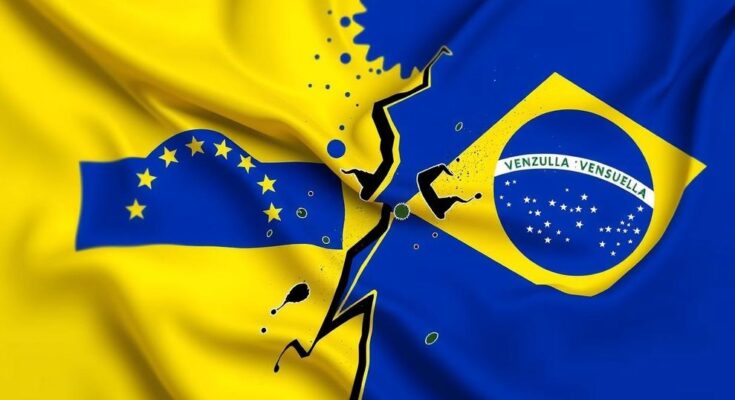Venezuela has recalled its ambassador to Brazil after the Brazilian government vetoed its BRICS application, leading to heightened diplomatic tensions. The move has sparked fierce criticism from President Nicolas Maduro, especially given the backdrop of disputed elections in Venezuela that Brazil and other Latin American countries have yet to formally recognize.
On October 30, 2024, Venezuela’s foreign ministry announced the recall of its ambassador to Brazil for consultations in response to Brazil’s recent veto of Venezuela’s application to join the BRICS group of emerging economies. This decision, made by the government of President Luiz Inacio Lula da Silva, has drawn strong condemnation from Venezuelan President Nicolas Maduro, who regards Brazil as a crucial ally. Ambassador Manuel Vadell was ordered to return immediately, while Brazil’s charge d’affaires in Caracas was summoned to express Venezuela’s discontent with the veto. The Ministry’s statement did not target President Lula directly, as he was absent from the BRICS summit in Russia due to a head injury he sustained at home. However, the statement criticized what it termed the “irrational behavior” of Brazilian diplomats, who the ministry claimed contradicted the approval of other BRICS members by adopting a blocking stance. Relations between Venezuela and various Latin American countries have deteriorated since the disputed elections held in Venezuela on July 18, where Maduro’s re-election was declared without transparency, leading to opposition claims of a landslide victory by their candidate. Brazil has yet to recognize Maduro’s re-election results, preferring to await a detailed breakdown. The tension has escalated as several Latin American nations have sided with the opposition, alongside the United States. Furthermore, the Venezuelan foreign ministry claimed that the former Brazilian foreign minister, Celso Amorim, had accused Caracas of having “breached the trust” of BRICS members due to its non-transparent electoral processes, leading to accusations against him of being a “messenger of North American imperialism.” This has prompted Venezuelan parliament president Jorge Rodriguez to call for Amorim to be declared persona non grata.
The diplomatic relations between Venezuela and Brazil have been historically complex, especially under the leadership of leftist figures. Venezuela’s attempt to join BRICS—an organization representing some of the world’s leading emerging economies—further complicates these dynamics, particularly amid allegations of electoral improprieties and a lack of democratic accountability within Venezuela. The fallout from the recent Venezuelan elections, which many Latin American countries and the US have deemed illegitimate, also significantly impacts Venezuela’s international standing and relations within the region. President Lula’s shift from a close relationship with former Venezuelan leader Hugo Chavez to a more critical stance regarding Maduro reflects the changing political landscape in Latin America.
In summary, Venezuela’s recall of its ambassador to Brazil underscores the escalating tensions between the two nations, largely stemming from Brazil’s veto of Venezuela’s BRICS application and the unresolved controversy surrounding Venezuela’s recent elections. The diplomatic strain highlights broader regional issues of governance and legitimacy, particularly as several countries challenge Maduro’s authority and call for electoral transparency.
Original Source: www.thehindu.com




